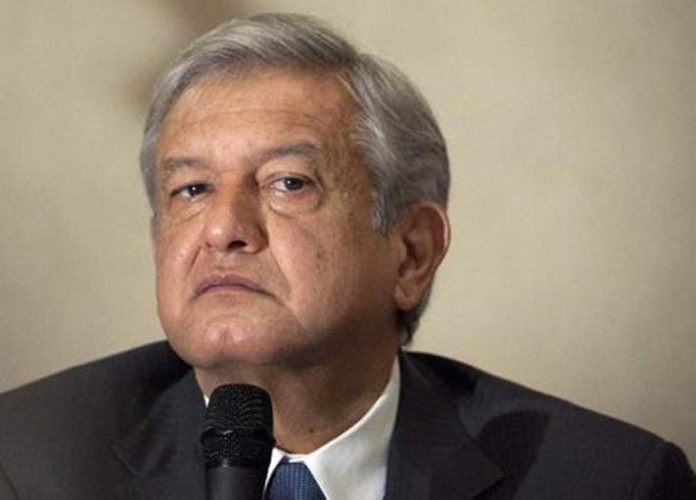Election authorities are investigating complaints filed by people who received automated phone calls this week in which presidential candidate Andrés Manuel López Obrador, widely known as AMLO, was depicted in a negative manner.
The Special Prosecutor for Electoral Crimes (Fepade) said in a statement that it is in the process of determining whether the calls constitute a crime, while the National Electoral Institute (INE) said it is also investigating and has been in contact with the Federal Telecommunications Institute to seek further details.
The INE also directed people who have received a call that they believe violated their right to a free vote to report it to Fepade.
Dozens of citizens have already formally denounced the anti-AMLO calls while many more have done so informally on social media.
The calls have mainly targeted voters in Mexico City and México state and purport to be a telephone survey canvassing voters’ views on a range of election-related topics.
“If you consider the upcoming elections important for you and for Mexico, this message will interest you. If you haven’t decided your vote and you identify with Andrés Manuel López Obrador, it will interest you even more,” the calls start.
“As you know, López Obrador proposed giving amnesty to those who have participated in drug trafficking. Are you for or against pardoning those who have committed crimes related to drug trafficking?”
By pressing a designated number on their telephone keypad, call recipients can express their opinion before hearing another loaded question or anti-AMLO message.
The calls have also sought opinions about a commitment from the Morena party leader to withdraw the army and navy from the fight against organized crime even though “they are the ones that have managed to arrest the drug lords.”
At a rally in Guerrero yesterday, López Obrador called on the INE to investigate who is behind the campaign, charging that the strategy is part of a “dirty war.”
“They’re making wholesale calls . . . to defame us, calls from telephones in the country but also from abroad . . . I’d like Telmex to help by informing who is contracting this service,” he said.
Martí Batres, Morena’s former national president and the party’s current head in Mexico City, attributed the calls to the party’s political adversaries “whether that be the PRI, PAN or PRD.”
A spokesman for second-place candidate Ricardo Anaya said the PAN [National Action Party] and the parties that make up the For Mexico in Front coalition have nothing to do with the calls.
Former Fepade chief Santiago Nieto, who has joined the Morena team, said Tuesday that calls that seek to discourage people from voting for AMLO are “illegal,” adding that the agency he previously headed “must act today.”
With just three weeks until election day, López Obrador has a commanding lead over his rivals in opinion polls that many believe is unassailable. The newspaper El País said this week that there is a 92% probability that AMLO will win.
With that in mind, it is perhaps unsurprising that some of those opposed to a López Obrador presidency are resorting to tactics such as this week’s phone calls.
However, the newspaper El Financiero reported yesterday that not all election-related automated calls are anti-AMLO.
It reported that in another call a recorded voice says that people who say that López Obrador is a danger for the country, that he will kill off investment and that he’ll turn Mexico into Venezuela are those who don’t want a transformation in Mexico.
Source: La Silla Rota (sp), Animal Político (sp), El Universal (sp), El Financiero (sp)
